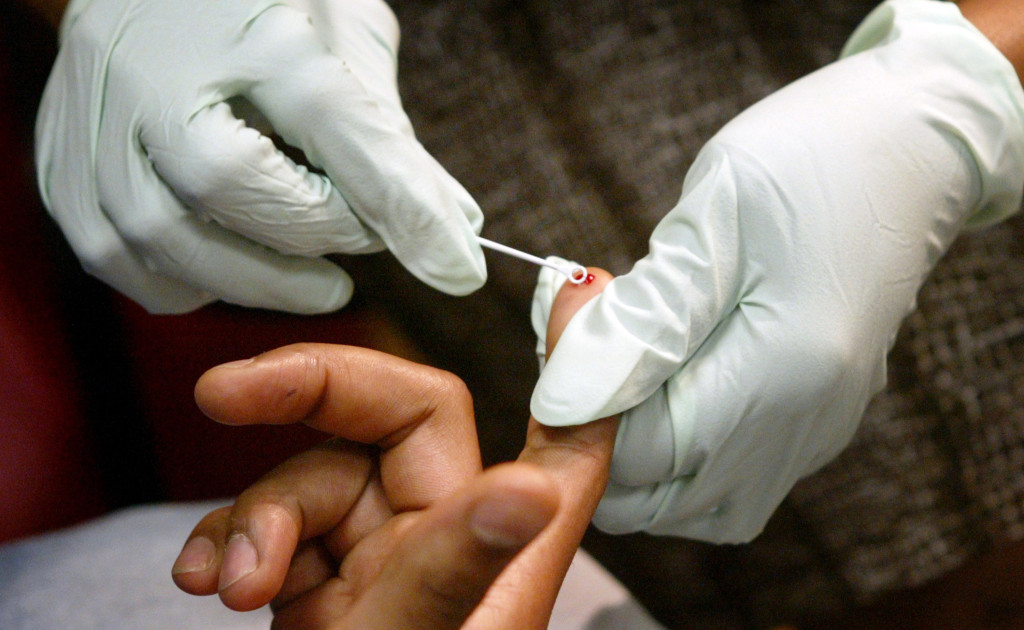Are you positive you’re negative?
By Andrea Arscott, Contributor
It’s disappointing to hear that some people out there are still of the opinion that HIV and hep C safety doesn’t apply to them. This type of thinking puts themselves and others at risk. Wake up, and get a whiff of this: if you’ve ever had sex (with or without a condom), or if you’ve ever had unprotected oral sex without talking about sexually transmitted infections (STIs) prior to rolling in the hay, you may find yourself lying in a bed of thorns.
HIV does not discriminate, and the only way to know whether or not someone is HIV-positive is to ask. If your partner doesn’t know the answer or hasn’t been tested since having sex with others, take responsibility, and go get tested together before doing anything you might both regret.
I work in an HIV and hep C program, and when I do workshops on these topics, participants sometimes say, “I wish I had known that 20 years ago.” If they were better informed, maybe they could have prevented their illnesses. Don’t wait a decade or two to learn about something you could’ve stopped. If you’re going to have sex, take ownership of your sexual health and get tested.
There are several different ways to find out if you’re HIV-positive, and it’s wise to have a test at least once a year if you’re engaging in activities that involve swapping blood or sexual fluids. Simply make an appointment with your doctor, visit a youth, drop-in, or STI clinic, or go to a public health unit during testing hours. Be specific and name the STIs and illnesses you want to be checked for.
The doctor or nurse will draw blood from your arm, send it to the lab for testing, and call you with the results within two weeks. (They may instead require you to call them, depending on the clinic you visit.) This particular test looks for HIV antibodies in your body, which would indicate the virus is in your system. If you prefer, have the test done anonymously by attaching a fake name or numbered code to your blood sample. Choosing this method allows you to phone in for the results with your fictitious name.
Accessing the public health unit is your best option if you don’t want to wait a week or two for the outcome. The nurses offer point-of-care rapid HIV testing, in which a nurse pricks your finger to obtain a drop of blood. The benefit: you get the results in 10 to 20 minutes. This test also works by detecting HIV antibodies in your system.
If the results are positive for either test, you’ll have to test again to get an accurate reading. There’s a one to six month window period to take into consideration for HIV. This means that the test will only reveal if you contracted HIV from sexual partners from one month to six months ago and before—not from recent dates. You’ll also need to have a second screening if the first one comes out negative (just to be positive that you’re negative).
Now, let’s say you discover that you’re HIV-positive. This in no way means you give up on life. People can live long and happy lives with HIV. If you take care of your health and start treatment when your doctor advises, you can survive 50 plus years and live longer than if you had cancer or another illness. One may also show no symptoms of HIV and feel healthy for years.
Once an HIV diagnosis is made, you’ll need to contact anyone you may have put at risk. If you’d rather not make these phone calls, a public health nurse can make them for you. She will contact previous partners, tell them they’ve been exposed to HIV and that they need to get checked out. The nurse will not disclose your name or information. Another option is to use inspot.org to send an anonymous e-card to notify previous partners that they’ve been exposed to an STI. If you pass an STI on to someone else, that person may not have symptoms for months, but can transmit the STI to others because they are considered a carrier. This is why it’s important to notify previous lovers—and also why it’s especially important to get tested even if you think you might be negative.
My message is simple: get tested; know your status; and stop the spread of hep C, HIV, and other STIs.
Get tested for hep C, HIV, and STIs at the New Westminster Health Unit at 218-610 Sixth Street in Royal City Mall the 3rd Thursday of the month from 4:30 to 6:00 p.m. or the 1st Wednesday of the month from 1:30 to 3:00 p.m. Ask for free condoms! You can also get your questions answered by emailing sexyquestions@purposesociety.org



